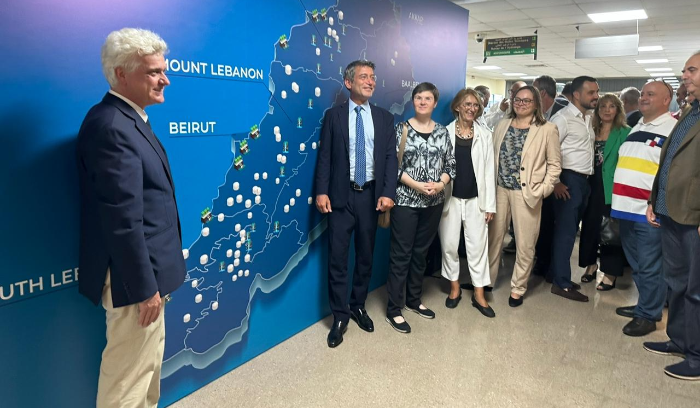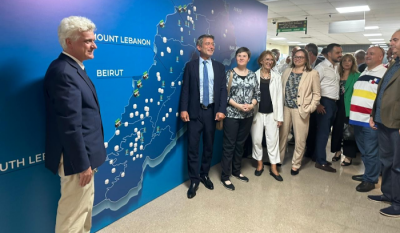The Ministry of Energy and Water hosted a documentary exhibition showcasing water projects in Lebanon, under the patronage and presence of the Minister of Energy and Water in the caretaker government, Walid Fayad. The exhibition featured over one hundred detailed panels, highlighting projects that improved access to better water and sanitation services through collaboration with UNICEF and funding from the German government via the German Development Bank (KfW).
Fayad noted that the cooperation with UNICEF and KfW shifted from investment-oriented projects related to the ministry's plans and strategies for the water and sanitation sector to urgent interventions due to the Syrian displacement crisis, followed by the major financial crisis, while still keeping part of this support for investment projects benefiting host communities.
He stated, "This exhibition is merely a manifestation of the investment component in the partners' strategy, comprising over 100 projects for the provision of water sources, storage facilities, and sanitation separation facilities, with a total value exceeding 120 million euros, benefiting hundreds of thousands."
He emphasized the ministry's stance on reviving major investment programs by continuing the implementation of projects that were halted due to a lack of local funding or the suspension of external funding by donors, saying, "Lebanon has hosted displaced persons for 13 years, and the country has been hospitable without accounting, as attested by all, but it has paid a high price in its economy, finances, and social situation."
He added, "It is time today for us to adopt a different and realistic policy that encourages displaced persons to return safely and honorably to their homeland, directing support towards their villages and towns in Syria, so that we can gather our strength in Lebanon to rebuild our economy on sound and sustainable foundations."
Katarina Lack, the Deputy Head of the Mission at the German Federal Embassy, noted that "ensuring access to water and sanitation is a fundamental and necessary commitment in the realm of human rights in the state." She stated, "Protecting and implementing this right significantly contributes to health and nutrition and improves the living standards of the people in Lebanon."
She added, "This exhibition is like a salute and a tribute to the significant contribution that Germany has made over the past eight years to support Lebanon in this sector."
She wished that this investment would yield lasting benefits for the communities served by these infrastructure developments.
From his side, Edward Baghdadi, UNICEF Representative in Lebanon, viewed the achieved results as reflecting everyone's dedication to ensuring the continuity and sustainability of water services and improving the lives of more than half of the population, especially in these difficult times. A statement distributed by the media office of the Minister of Energy indicated that the collaborative efforts between UNICEF and the German government have left a lasting impact on the country's water infrastructure, noting that UNICEF is committed to continue implementing water projects until the end of 2024 and working towards equitable access to clean water for all communities in Lebanon.
The minister, along with representatives from UNICEF and the German government, later toured the exhibition, which will last for two days at the Ministry of Energy and Water building.




